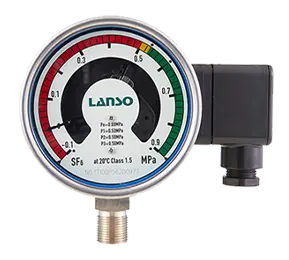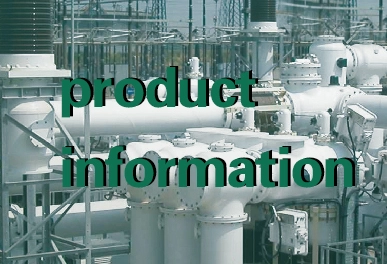Ⅰ. Selection of pressure gauge
There are many types of pressure gauges, which are also common measuring instruments, which are widely used in various fields. Pressure gauges can be selected according to their own requirements. Under the premise of meeting the technological conditions, the principle of economical use shall be considered from many aspects, and reasonable selection shall be achieved.
1. Determination of the accuracy level of the pressure gauge: The precision level of the precision pressure gauge is mainly divided into 0.1, 0.16, 0.25, and 0.4 grades, and the precision of the general type pressure gauge is divided into 1.0, 1.6, 2.5, and 4.0 grades.
When we select the pressure gauge, the method of precision level: According to the requirements of the production process, economical applicability, testing method, etc., the accuracy should be determined according to the required allowable error of the measured pressure value.
2. Nominal diameter of instrument housing (mm) series: Φ40, Φ63, Φ100, Φ160, Φ200, Φ250.
The nominal diameter of the housing of different grades and meters should meet specific standards: for diameters of 40, 63, accuracy grades should be 2.5, 4.0; for diameters of 100, accuracy grades should be 1.6, 2.5; for diameters of 160, 200, 250, The accuracy levels are 1.0 and 1.6.
3. Several issues should be paid attention to in the selection of pressure gauge range.
When measuring stable pressure, the working pressure should not exceed three-quarters of the overall range.
When measuring the pulsating pressure, the working pressure should not exceed two-thirds of the overall measuring range.
When measuring high pressure, the working pressure should not exceed three-fifths of the overall range.
Ⅱ. The selection of different types of pressure gauges
The selection of different types of pressure gauges is divided into the following points: Different types of pressure gauges should be selected to measure different media and use environments.
1. For general media, such as air, water, oil, etc., ordinary pressure gauges can be used.
2. For special media, we need to use special pressure gauges, such as ammonia pressure gauge for ammonia type; oxygen pressure gauge for oxygen type; hydrogen pressure gauge for hydrogen type; acetylene pressure gauge for acetylene type and so on.
3. For generally corrosive media or media with corrosive gas environment, we can choose stainless steel pressure gauges.
4. For measuring the pressure of liquids or gases that are with high viscosity, easy to crystallize, corrosive, in high temperature, and medium containing solid particles, choose a diaphragm type pressure gauge.
5. For pressure measurement in impulsive media or mechanical vibration occasions, choose an anti-vibration pressure gauge.
6. When remote transmission is required, a remote transmission pressure gauge can be used. The remote transmission signal has current type, resistance type and voltage type.
7. An electric contact pressure gauge can be used when there is a control and protection requirement.
8. When explosion-proof requirements are required, explosion-proof pressure gauges must be used, such as explosion-proof electric contact pressure gauges.
Related Article for Reference
Design Ideas on a Detachable and Adjustable SF6 Relay
It will be very meaningful to study a disassembled SF6 relay with adjustable alarm value to achieve technological innovation and energy saving and efficiency.1. Design ideas of SF6 relay with detachab...
Fri 10 2022
What Is the Function of SF6 Relay Calibrator?
When we are in contact with the SF6 relay calibrator, we may want to know what it does, and what power equipment is it used to test? This article will give you a detailed introduction:Before the intro...
Mon 01 2021







